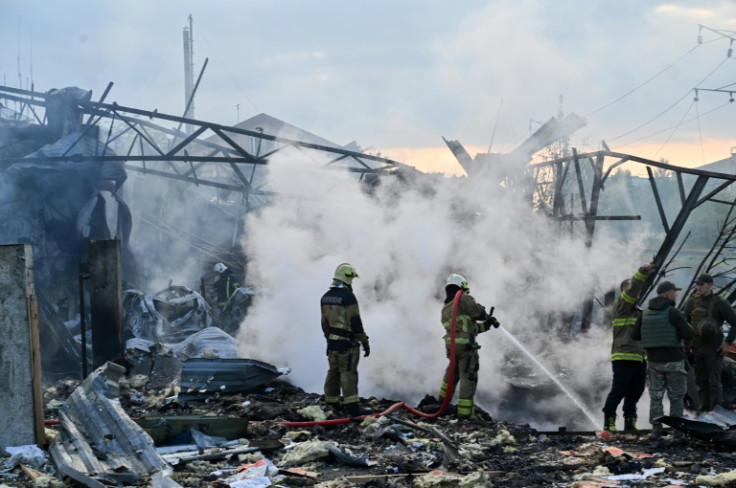
Ukraine's troops would soon run short of essential ammunition and equipment if Republican hardliners succeed in stopping US military aid, undermining operations on the ground and reducing their ability to defend against Russian strikes, experts say.
Top American officials have repeatedly insisted the United States would back Kyiv for "as long as it takes," and Washington has committed more than $43 billion in security aid since Russia invaded Ukraine in February 2022 -- over half the total from all Western donors.
But Republican opposition led Congress to remove new funding for Ukraine from a recent compromise bill to avoid a US government shutdown, highlighting that continued American support is not guaranteed.
"It would be devastating for the Ukrainians" if US aid is halted, said Mark Cancian, a senior advisor at the Center for Strategic and International Studies.
"The Ukrainian military would weaken and then ultimately perhaps collapse," though it "might be able to just hold on on the defensive," he said.
The United States has supplied a vast arsenal to help Kyiv fight to regain territory seized by Russia, ranging from small arms ammunition and artillery rounds to vehicles, sophisticated rocket launchers, tanks and mine-clearing equipment.
"Militaries in conflict need a continuous flow of weapons and supplies and munitions to replace what's destroyed and gets used up," Cancian said.
If US aid were completely cut off -- something the White House insists will not happen -- the impact would not be immediate, given that previously authorized assistance is still in the pipeline.
"It would take probably a couple of weeks before we see effects on the battlefield," he said, and Moscow might not be able to capitalize even then as "the Russians are pretty exhausted at this point."
Away from the front lines, an end to US aid would leave gaps in Ukraine's air defenses, which are made up of systems from multiple countries that cover different altitudes and must be continually resupplied with munitions.
These defenses play a key role in protecting Ukrainian civilians and infrastructure from frequent drone and missile attacks by Russia.
"You can't really just... replace one system with another system if they operate in slightly different ways and deal with different threats," said James Black, assistant director of the defense and security research group at RAND Europe.
"If you took out the kind of US component of that, then you necessarily degrade the... effectiveness" of the entire integrated system, he said.
Dozens of countries -- especially in Europe -- have provided military aid to Ukraine, and while they could increase support, picking up all the slack left by Washington would be a major long-term challenge.
It would require a "years and decades-long effort to get Europe to a place where (it) could fully replace the US as a kind of military power, or a defense industrial power," Black said.
That "isn't a comfortable timeline if you're Ukraine, where you'd need support in... weeks and months."
What the Republicans controlling the House of Representatives will do next is unclear.
House Speaker Kevin McCarthy -- members of whose Republican party were behind the removal of assistance for Kyiv from the bill to avert the shutdown -- said Sunday he would "make sure that the weapons are provided for Ukraine."
But the Republican leader indicated the political maneuvers to come when he said that Ukraine will only get help if there is more done for security against illegal immigration on the US-Mexican border.
"They're not going to get some big package if the border is not secure," he told CBS.
US Defense Secretary Lloyd Austin -- who played a key role in forging an international coalition to back Ukraine, and then in coordinating assistance -- called over the weekend for Congress to take action.
Lawmakers should make good on "America's commitment to provide urgently needed assistance to the people of Ukraine as they fight to defend their own country against the forces of tyranny," he said in a statement.
"America must live up to its word and continue to lead."



